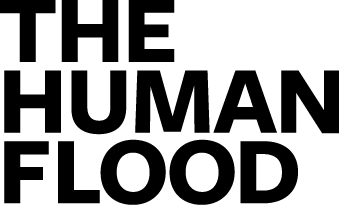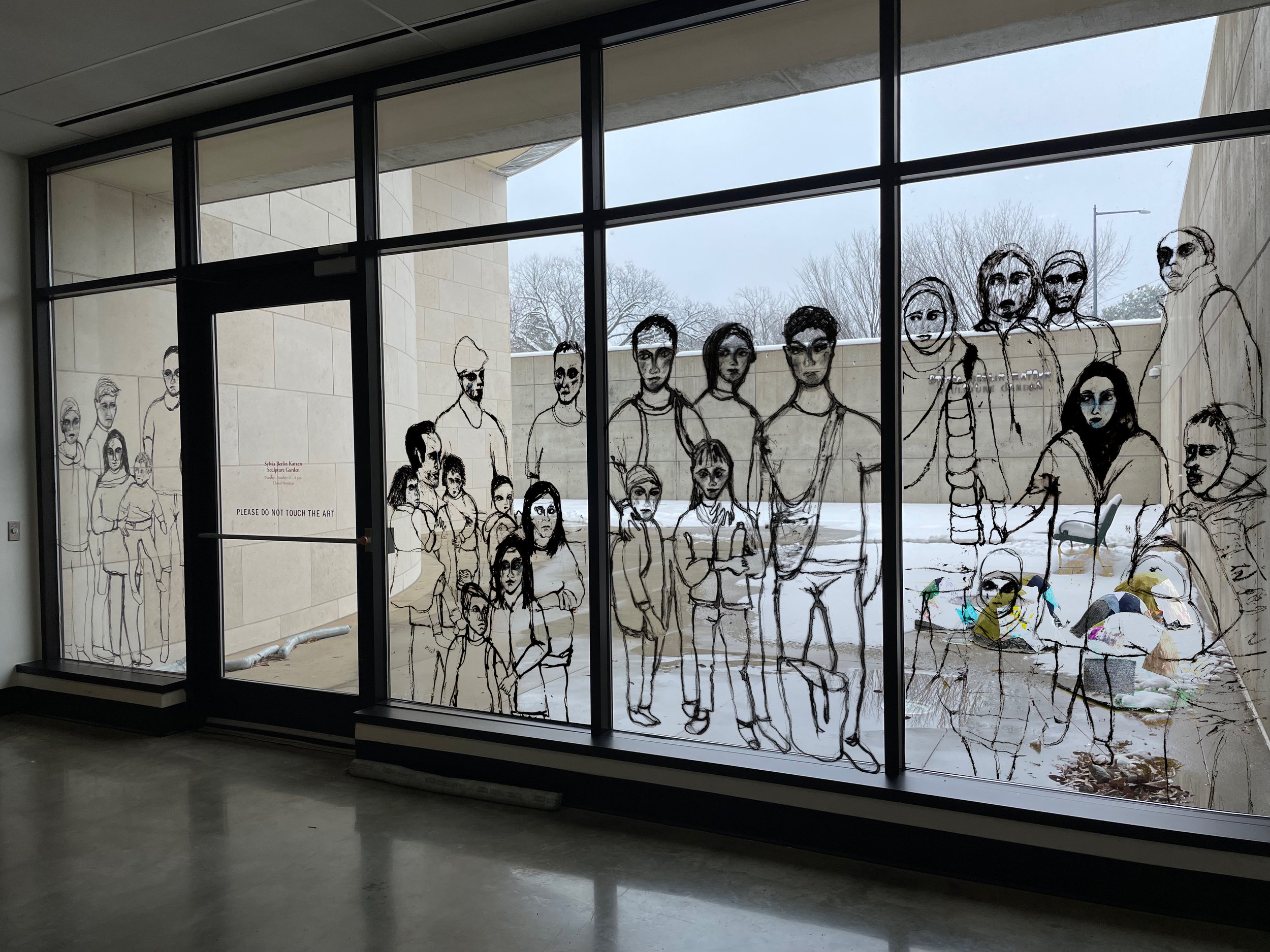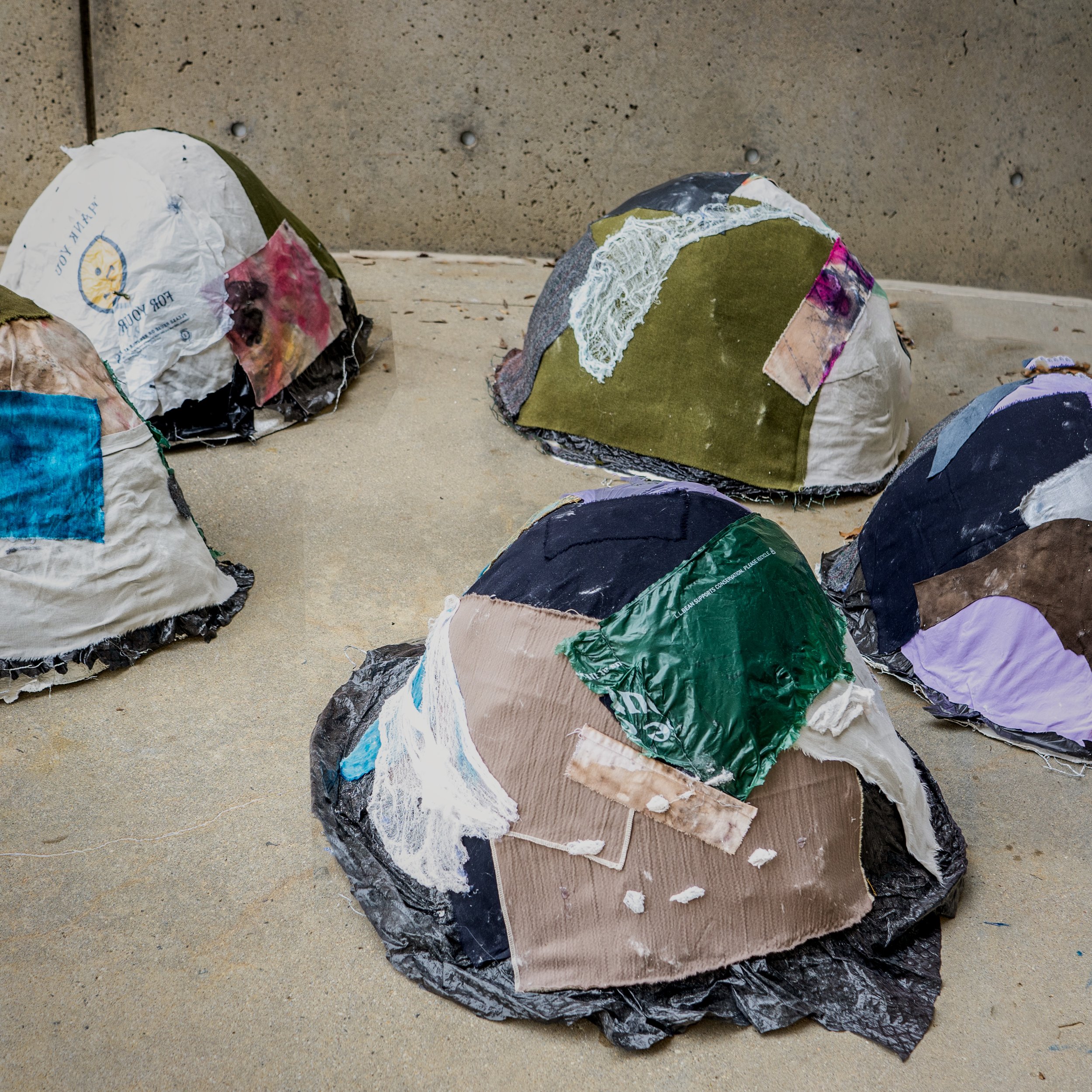The Human Flood reflects upon the mass migration of human populations caused by climate change. This continuing displacement of millions will have profound consequences — nomadic refugee scenarios, fracturing of family ties, loss of home and heritage, uncertainty, poverty, and helplessness — unless we create positive policies for resettlement. We challenge the audience to consider what it is like to leave behind a life upon migration.
Conceived and created by Ellyn Weiss and Sondra N. Arkin, two artists who have collaborated for many years both in making installations and in curating exhibitions. A major part of their work over the past decade speaks directly to the existential threat posed by global climate change. The Human Flood is a glimpse into the lives of those uprooted by diminishing habitable land creating a sense of movement and insecurity, mirroring the displacement of refugees. Weiss and Arkin hope to challenge the audience to imagine the societal transformation necessary in the richer global North, which bears most responsibility for the activity creating climate change, to accommodate the challenges of migrations of this magnitude.
The Human Flood isn't just about raising awareness – it's about forging compassion and empathy. By confronting viewers with the raw realities of forced migration, Ellyn and Sondra present a challenge to consider the human cost of environmental change and societal upheaval. They compel viewers to imagine themselves in the stories of those swept up in the ever-rising tide of displacement and demand changes in policy to shape resettlement solutions.











